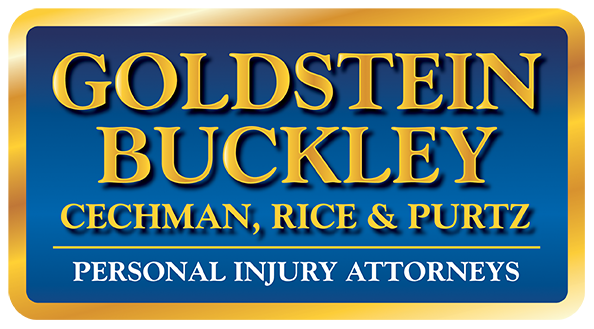Navigating personal injury claims can be a complex and daunting process, especially when dealing with an injury as common as whiplash. In Naples, Florida, as in many other places, comparative negligence plays a crucial role in determining the outcome of such claims. Understanding how comparative negligence works and the specific requirements in Naples can significantly impact the success of your whiplash claim. In this article, we’ll delve into the concept of comparative negligence, its implications in whiplash cases, and what you need to know when pursuing such claims in Naples.
What is Comparative Negligence?
Comparative negligence is a legal doctrine used in personal injury cases to assign fault or responsibility when multiple parties are involved. Florida follows a pure comparative negligence system, which means that even if you, as the injured party, are partially responsible for the accident that led to your whiplash injury, you can still seek compensation. However, your compensation will be reduced based on the percentage of your own fault.
For example, if you are found 20% at fault for the accident and your total damages amount to $10,000, your compensation would be reduced by 20%, leaving you with $8,000.
Whiplash and Comparative Negligence
Whiplash injuries are often associated with rear-end collisions, but they can occur in various types of accidents, including car accidents, slip and falls, and sporting incidents. The key to a successful whiplash claim is establishing liability, and in Naples, comparative negligence plays a significant role in determining how much compensation you may receive
Here’s how comparative negligence can impact your whiplash claim:
- Determining Liability: In whiplash cases, establishing liability is critical. If the other party is solely responsible for the accident, you may be entitled to full compensation. However, if you share some level of responsibility, your compensation will be reduced accordingly.
- Insurance Company Tactics: Insurance companies are adept at using comparative negligence to their advantage. They may try to shift blame onto you or argue that your actions contributed significantly to the accident. It’s crucial to have a skilled attorney who can counter these tactics and protect your rights.
- Negotiating a Fair Settlement: When negotiating a settlement for your whiplash claim, the other party’s insurance company will consider the degree of comparative negligence. Having a clear understanding of how this system works will help you make informed decisions during negotiations.
Requirements for Whiplash Claims in Naples, Florida
To pursue a whiplash claim successfully in Naples, you need to meet certain requirements and follow a specific process. Here are the essential steps to keep in mind:
- Seek Medical Attention: The first and most crucial step after suffering whiplash is seeking immediate medical attention. Not only is this essential for your health and well-being, but it also creates a documented record of your injuries, which will be vital for your claim.
- Preserve Evidence: Collect and preserve any evidence related to the accident and your injuries. This may include photographs of the accident scene, vehicle damage, and your injuries. If there were any witnesses, obtain their contact information.
- Report the Accident: If your whiplash injury resulted from a car accident, report it to the local authorities and your insurance company as soon as possible. This is a legal requirement in Florida.
- Consult with an Attorney: It’s highly advisable to consult with a personal injury attorney experienced in handling whiplash claims in Naples. An attorney can help you navigate the legal complexities, gather evidence, and negotiate with insurance companies on your behalf.
- File a Lawsuit if Necessary: If a fair settlement cannot be reached through negotiations, your attorney can file a lawsuit on your behalf. It’s essential to adhere to Florida’s statute of limitations, which typically gives you four years from the date of the accident to file a personal injury lawsuit.
- Proving Damages: To recover compensation for your whiplash injuries, you must provide evidence of damages, including medical bills, lost wages, pain and suffering, and other related expenses. Your attorney will help you build a strong case to demonstrate the extent of your damages.
- Understanding Comparative Negligence: As mentioned earlier, Naples operates under a pure comparative negligence system. Your attorney will assess the circumstances of the accident and determine how comparative negligence might impact your claim.
- Negotiating or Going to Trial: Your attorney will engage in negotiations with the responsible party’s insurance company to reach a fair settlement. If an agreement cannot be reached, the case may proceed to trial, where a judge or jury will determine the outcome.
Navigating the Impact of Comparative Negligence on Whiplash Claims
Now that we have a better understanding of how comparative negligence works and the essential steps to take when pursuing a whiplash claim in Naples, let’s delve deeper into the impact of comparative negligence on your case.
Determining Fault
In any personal injury claim, the first step is determining fault or liability. In the case of whiplash, this means establishing who was at fault for the accident that caused your injury. Comparative negligence acknowledges that accidents are often not black and white; they can involve shared responsibility.
For instance, consider a scenario where you were rear-ended while stopped at a traffic light, resulting in whiplash. The driver who rear-ended you may be primarily at fault, but if you were texting on your phone at the time, you might be found partially responsible for not paying full attention to the road. In such cases, both parties share some degree of fault.
Impact on Compensation
Once fault is determined, the concept of comparative negligence comes into play when calculating the compensation you are entitled to receive. In Florida’s pure comparative negligence system, your compensation is directly proportionate to your degree of fault.
To illustrate this, let’s continue with the example of a $10,000 claim. If you were found 20% at fault for the accident, your compensation would be reduced by 20%, leaving you with $8,000. However, even if you were found 90% at fault, you could still seek 10% of the total damages, which in this case would be $1,000.
Navigating a whiplash claim in Naples, Florida, involves understanding the intricacies of comparative negligence and adhering to specific requirements. Seeking legal guidance and representation from experienced personal injury attorneys, such as Goldstein, Buckley, Cechman, Rice & Purtz, P.A., can make a significant difference in the outcome of your claim.
Remember that even if you bear some responsibility for the accident that led to your whiplash injury, you may still be entitled to compensation. The key is to have a skilled attorney who can help you navigate the legal process and advocate for your rights.
If you or a loved one has suffered a whiplash injury in Naples, Florida, don’t hesitate to reach out to us at Goldstein, Buckley, Cechman, Rice & Purtz, P.A. Our experienced team of attorneys is here to assist you in understanding your rights, pursuing your claim, and seeking the compensation you deserve.
Contact us today for a consultation and take the first step toward securing the financial recovery you need to move forward after a whiplash injury. Your well-being and your rights are our top priorities.
